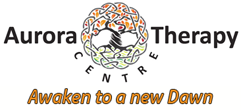Working with relationships that are not monogamous is an important aspect of relationship therapy that should not be overlooked. In modern society, there is increasing recognition and acceptance of diverse relationship structures, including polyamorous relationships, open relationships, and other forms of consensual non-monogamy.
It is essential for therapists to recognise the importance of acknowledging and respecting these diverse relationships. Therapists who receive training in working with non-monogamous relationships can provide effective support and guidance to individuals and couples who may be navigating these complex dynamics.
Recognizing and understanding non-monogamous relationships can also help therapists provide more comprehensive and inclusive services to clients. By acknowledging and respecting diverse relationship structures, therapists can create a safe and supportive environment for clients to explore and discuss their relationship concerns.
Moreover, working with non-monogamous relationships requires a specific set of skills and knowledge that may differ from those used in traditional monogamous relationship therapy. Trained therapists can provide specialised support and interventions that are tailored to the unique needs and concerns of non-monogamous relationships.
In conclusion, recognizing and working with non-monogamous relationships is an important aspect of modern relationship therapy. By acknowledging and respecting diverse relationship structures, therapists can provide more inclusive and effective services to clients, and help promote healthy and fulfilling relationships for all.
